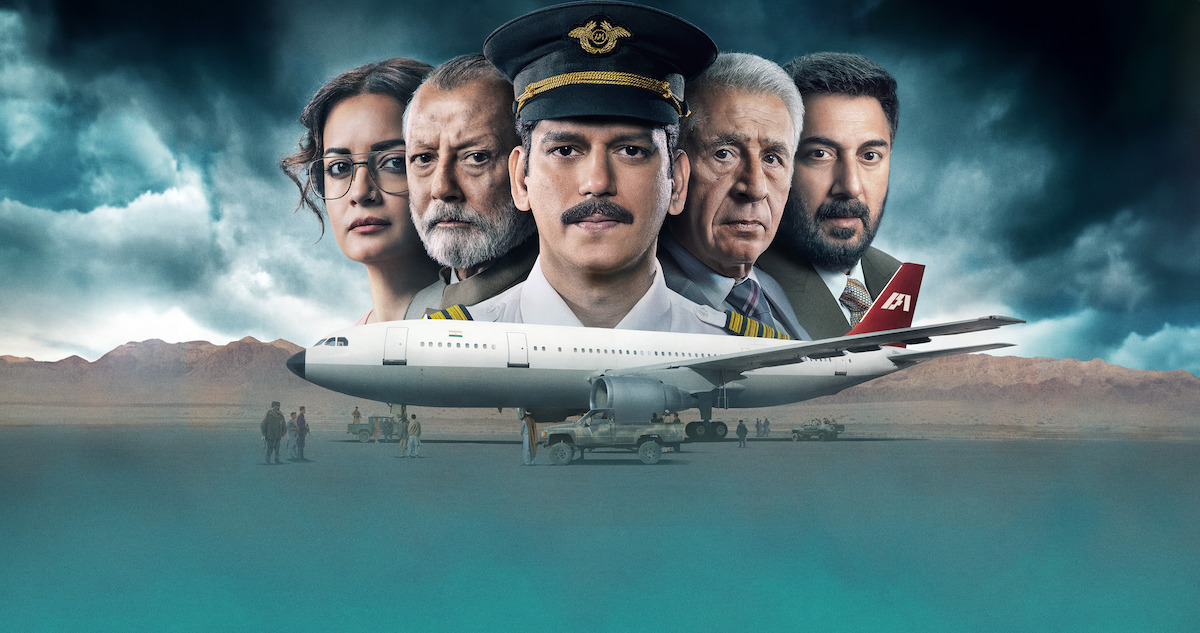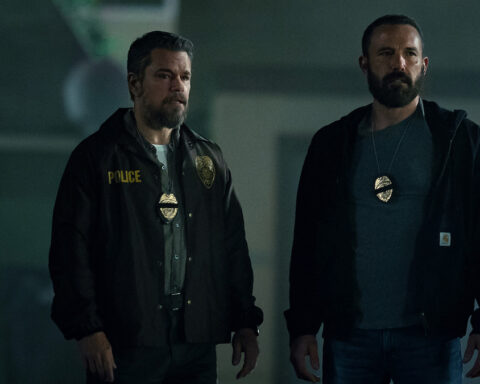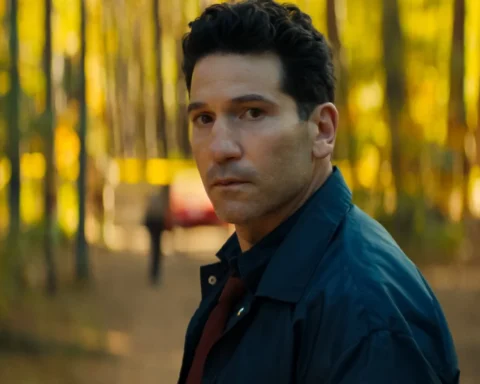IC 814: The Kandahar Hijack is a six-episode limited series, with which noted Indian filmmaker Anubhav Sinha debuts on the OTT platform. The history behind the hijacking of the Indian Airlines flight IC 814 is already available in the public domain, so a fictional show inspired by these real-life events may become a frivolous attempt if it doesn’t carefully balance factual accuracy with creative freedom. But Sinha, along with his co-writer Trishant Srivastava and Adrian Levy, who takes credit for the story, respects the gravity of the events. They craft a riveting narrative that not only captures our attention but also compels us to engage deeply with the unfolding drama, even as we remain acutely aware of the outcome. It is a tense hijack thriller that refuses to adhere to the tried and tested tropes of high-octane action sequences or principal characters blurting out nationalistic rhetoric or jingoistic dialogues to express their concerns for the native citizens. The crisis that befalls the Indian officials, as well as the crew members of the flight, to save the lives of 180 passengers onboard remains at the core of the story. This focus makes the narrative all the more potently engrossing, earning it the reputation of one of the best Indian web series of the year.
Based on Flight Into Fear by Captain Devi Sharan, Srinjoy Chowdhury, and Anil Sharma’s IA’s Terror Trail, the series begins in Kathmandu. A RA&W agent Ram (Anupam Tripathi) is suspecting the movement of an ISI agent, and he doubts an attack on India. He informs his higher officials in Delhi, but it goes unnoticed. Before he could stop the catastrophe from happening, as Air India flight IC 814 departs from Kathmandu airport to Delhi, it is hijacked by four terrorists with code names. The pilot, Captain Sharan Dev (Vijay Verma), is ordered at gunpoint to land the plane in Kabul. But due to the shortage of fuel, the flight has to land in Amritsar airport for refueling. The intelligence officers and bureaucrats of the Indian administration in Delhi try to hatch a plan to nab the terrorists and save every passenger on the flight. However, decisions made by the ministers and decision makers at the top echelons of Indian politics turn the shameful event of the security lapse into a week-long battle of geopolitical maneuvering.
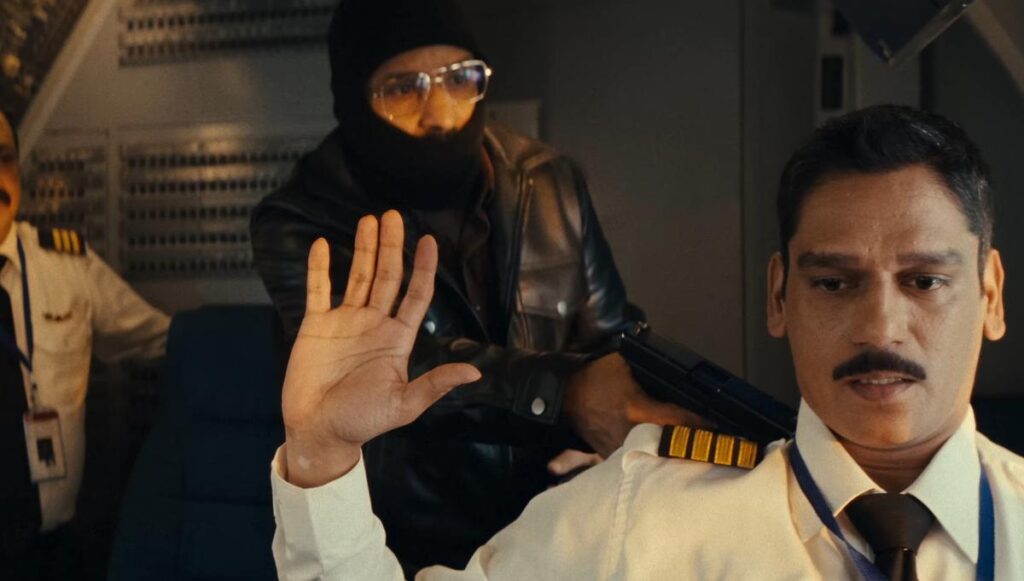
From the first episode onwards, the series runs at a thrilling pace and maintains the momentum throughout. The political conflict of India with various nations at that time has been vividly woven into the narrative to heighten its authenticity. The tension escalates when the flight is not allowed to land in Lahore due to Pakistan’s defeat in Kargil. In order to land in Dubai, India needs permission from the US, which is unhappy with India’s nuclear tests in Pokhran. Even on the home front, finding a solution to rescue the captives is like a Herculean task, entangled in political complexities. When the flight was in Amritsar for refueling, a plan was devised to capture the terrorists with the help of the National Security Guard (NSG) and commandos from the Punjab police. However, the then Chief Minister of Punjab was hesitant, and the home minister in Delhi also took his time to arrive at a concrete solution. Thus, the series does not hesitate to highlight how administrative indecision and diplomatic inertia from the higher officials hindered prompt responses in moments of crisis, ultimately placing innocent lives at greater risk. Later, when the flight safely lands in Kandahar and the terrorists present their demands, the decision to release the four notorious extremists—Maulana Masood Azhar, Omar Sheikh, and Mushtaq Ahmed Zargar—proves to be a tremendously difficult one. There is also a moment when the bureaucrats blatantly decide that Captain Sharan will have to be the scapegoat, bearing the brunt of the government’s failure at the Amritsar airport. These bitter truths contribute to the series’ ability to shed light on the often harsh realities of decision-making and accountability in times of calamity.
There are also lighthearted moments in the series that enhance how humanity thrives within a world of brutality. A Pakistani from the control room in Dubai convinces the hijacker to release women and children by reciting verses from the Quran. A conversation over tea and coffee between two bureaucrats takes a humorous dig at religious practices. The hijackers play antakshari and exchange cigarettes with the people trapped on the flight. A reluctant father is compelled to spend time with his differently-abled son, for whom he does not have much affection, within the confinements of the hijacked flight. An air hostess, Indrani (Patralekhaa Paul), takes care of an ailing old man just as she would care for her paralyzed father back at home. All these moments bring a much-needed balance to the narrative and showcases the resilience of the human spirit amidst chaos and despair. Even the friction between Shalini (Diya Mirza), a pragmatic newspaper editor, and an idealistic reporter Nandi (Amrita Puri) over professional ethics emphasizes the broader themes of integrity and accountability in the media. To ease the historicity of the events, the filmmaker has effectively utilized two narrative devices. One of them is the voiceover by Ninad Kamat, which provides context and insight. The other involves cutting to actual news footage of the events. It immerses us in the intensity of the situation and bridges the gap between dramatization and reality.
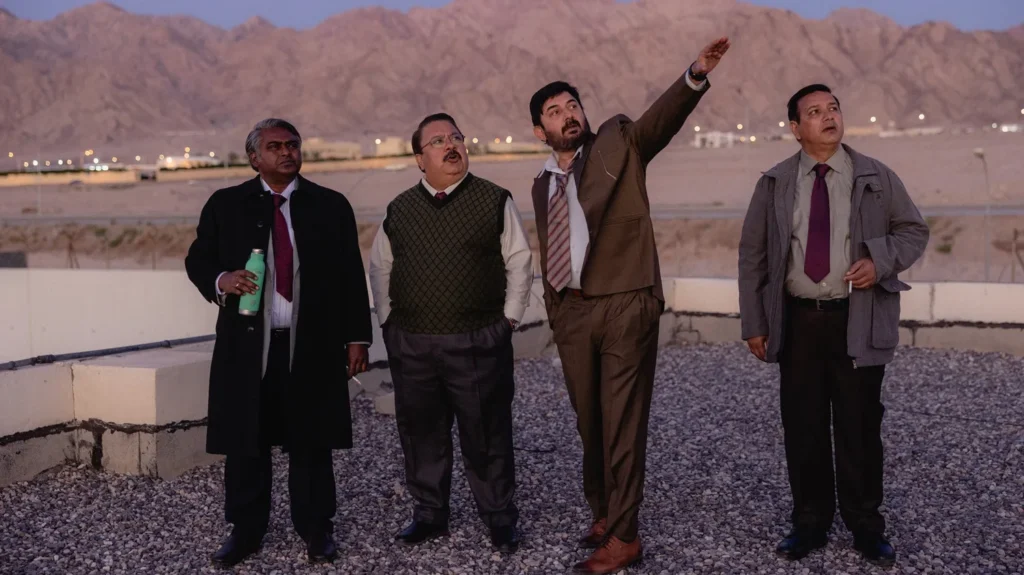
The cinematography by Ewan Mulligan and Ravi Kiran Ayyagari brings a frenetic energy to the film. It captures the tension of the unfolding crisis with dynamic compositions and camera movements to immerse us in the urgency of the situation. Amarjit Singh’s editing maintains the intensity and edginess of the plot’s progression and heightens the dramatic impact. Richard Harvey and Alex Lamy’s background score keeps the tension palpable throughout the film. The production design by Sumit Basu, Snigdha, and Rajnish Hedao brings authenticity to the interiors of the flight and the offices of the bureaucrats.
The ensemble cast of the film features Pankaj Kapur as Vijaybhan Singh, Naseeruddin Shah as Vinay Kaul, Manoj Pahwa as Mukul Mohan, Aditya Srivastava as V.K. Agarwal, Kumud Mishra as Ranjan Mishra, Arvind Swami as DRS and Anupam Tripathi as Ram–all of them brings nuance to their roles and heightens the overall impact of the series. Vijay Verma as Captain Sharan Dev brings a calm composure and intellect to his character while dealing with a crisis. The women characters in the series, portrayed by Dia Mirza, Patralekhaa Paul, Additi Gupta Chopra, and Amrita Puri, also add significant weight to their roles. The hijackers, Rajiv Thakur as Chief and Harminder Singh as Doctor, could have been more menacing, while Diljohn, in his role as the mercurial Burger, brings a strange charm to the character.
As we reach the final episode, the build-up regarding the release of the four terrorists slows down a bit, as we never see them visually being escorted by the Afghan government. This makes us crave a more dramatic conclusion. Moreover, the series perceives the drastic decision taken by the Indian government through a sympathetic lens, leaving the broader implications of their choices untouched. These are some of the blemishes in an otherwise gripping series that adeptly captures the tension and complexity of the situation. Sinha’s non-sentimental and matter-of-fact approach makes the series all the more powerful, as it presents the events with stark realism and honesty.
IC 814: The Kandahar Hijack is currently streaming on Netflix.
